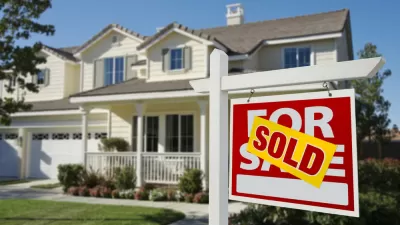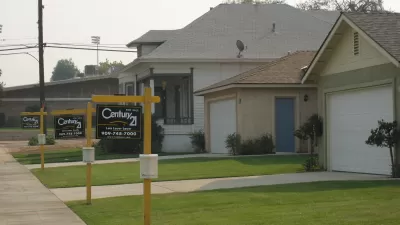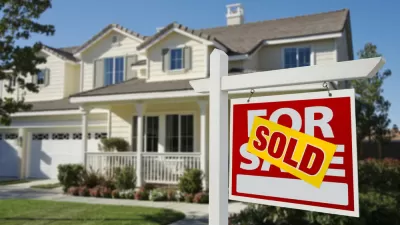African-Americans and Latinos lost huge amounts of wealth in the crisis. A Washington Post editorial writer asserts that all this loss of wealth is a positive, even though it affected low- and moderate-income and new buyers disproportionately.

On Aug. 3, The Washington Post published a remarkable opinion piece by Charles Lane, one of the paper's editorial writers, which fits squarely into the Post’s narrative about the perniciousness of all things Fannie Mae and Freddie Mac. Lane drops this gem, “the ongoing decline of the homeownership rate is actually good news.”
Actually, it’s not.
Let’s start with how we lost ground on homeownership, which has dropped to about 63 percent of households from a peak of near 70 percent. There are two ways we did this: one, by turning owners back into renters through foreclosures, and two, by having fewer new entrants to the market. While it’s impossible and fruitless to argue what the homeownership rate should be, we know that the loss of wealth is never a good development.
Foreclosures, short sales, and other reactions to the crisis threatened and then wiped out many American dreams. It’s also well known that, as we remain in the shadow of the housing crisis, first-time homebuyers are delaying or not buying at all.
While Lane may think this is good news, it’s hard to mesh this with other data points from the crisis.
FULL STORY: Say What, Washington Post? Declining Homeownership Rates Aren’t a Good Thing

Planetizen Federal Action Tracker
A weekly monitor of how Trump’s orders and actions are impacting planners and planning in America.

Maui's Vacation Rental Debate Turns Ugly
Verbal attacks, misinformation campaigns and fistfights plague a high-stakes debate to convert thousands of vacation rentals into long-term housing.

San Francisco Suspends Traffic Calming Amidst Record Deaths
Citing “a challenging fiscal landscape,” the city will cease the program on the heels of 42 traffic deaths, including 24 pedestrians.

Amtrak Rolls Out New Orleans to Alabama “Mardi Gras” Train
The new service will operate morning and evening departures between Mobile and New Orleans.

The Subversive Car-Free Guide to Trump's Great American Road Trip
Car-free ways to access Chicagoland’s best tourist attractions.

San Antonio and Austin are Fusing Into one Massive Megaregion
The region spanning the two central Texas cities is growing fast, posing challenges for local infrastructure and water supplies.
Urban Design for Planners 1: Software Tools
This six-course series explores essential urban design concepts using open source software and equips planners with the tools they need to participate fully in the urban design process.
Planning for Universal Design
Learn the tools for implementing Universal Design in planning regulations.
Heyer Gruel & Associates PA
JM Goldson LLC
Custer County Colorado
City of Camden Redevelopment Agency
City of Astoria
Transportation Research & Education Center (TREC) at Portland State University
Jefferson Parish Government
Camden Redevelopment Agency
City of Claremont





























